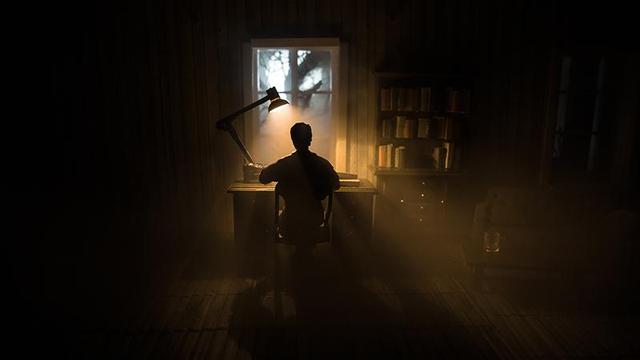"Hundred Opera Divisions" Kunqu Shenzhen is held in Shenzhen, injecting new cultural connotations into the city
Author:Shenzhen Evening News Time:2022.07.27
Kunqian water grinding, the echo of Wan turned, the six hundred spring and autumn, the rest of the sound around the beam. In the opera hundred gardens, there is a clear orchid, which is the Kunqu opera that can be called the treasure of art. In 2001, Kunqu was listed as the first batch of "human oral and intangible cultural heritage masterpieces" by UNESCO and entered the public's vision. In recent years, with the successful tour of the youth version of "Peony Pavilion", this ancient art genre audience has also become more "kind".

In Shenzhen, not only the major theaters often staged the famous Kunqu drama, but many cultural masters are also intoxicated by its elegance. There are also people's regular drama organizations in the folk Kunqu Society, and even the new generation of Kunqu opera in the "post -10". Tradition and modernity, ancient and young, will gather here to give Kunqu vitality. Father and daughter appeared on the same stage on the same stage
As a "master of a hundred opera" in China, Kunquwen has gorgeous and elegant, the tune is clear and gentle, the dancing posture is delicate and beautiful, the meaning of poetry and the style of painting, condenses Chinese classical literature, song and dance, drama, and artistic essence. What is exciting is that there are no shortage of "10 post -10s" that fall in love with and inherit this traditional culture today.

▲ Huang Baoyun
In the center of the stage, water sleeves, turn around, and tune. Although the 12 -year -old Huang Baoyong is immature, it interprets the charm of Kunquan's stretch. Recalling his childhood, "I went to the theater with my parents to watch the performance of the Kunshi Theater.
Since the age of 7 at the age of 7, Huang Baoyong will go to Suzhou for more than a month every summer vacation. She has learned the arts with the experts of the Kunlin House in Jiangsu Province. Speaking of learning and art, Huang Baoyun admits that "particularly difficult", especially after deep into the go, many small details should be paid attention to.

The side corner of the stage, or the Huang Pei who follows the piano, or the flute is Huang Baoyun's father. "I have been working with my daughter for a while, I have always been my dream." Huang Pei's heart was very relieved. Now that he wants to pay for it, he feels more about the spiritual inheritance between the two generations. Twenty years ago, I accidentally saw the "Peony Pavilion and Dreams" performed by Shanwen, the Kunji theater of Jiangsu Province, and was intoxicated in Kunqu. In Huang Pei's eyes, Kunqu is a well -deserved ceiling of traditional Chinese art aesthetics, such as the Orchids. Fragrance, light in the ear, Qin Xin in the heart. He brought his daughter into the colorful world of Kunqu, playing "flying" to watch the performance, and went to Suzhou to accompany him. Of course, but sweet!

▲ Huang Pei and Huang Baoyun's father and daughter Yaji Ji Ji on the same stage
"I drove to Pingshan for more than an hour to watch" Peach Blossom Fan "for more than an hour last month. It was 1 o'clock in the middle of the night. The child said 'it is worth it!" Huang Pei's idea is very simple. Add a beauty to the future life.

Elegance like this is increasingly appearing in Shenzhen. According to Mr. Ma in the circle, in addition to the relatively large Kunqu opera institutions such as Shenzhen and Ya Kunqu Association, Qingyin Kunqu Society in Baoan District, Shenzhen, and Shenzhen Kunqus from Shenzhen. Regularly rehearsing and performing, while participants are happy, they also inject new cultural connotations into this city.
The descendants of the Gan of the Jinling family chose to teach the art
Chinese Kunqu opera and Indian Sanskrit, ancient Greek tragedy comedy are collectively known as the world's three major ancient dramas. After 600 years of wind and frost inheritance, when it comes to the stories worth telling and remembered in Kunqu opera, they can't get around the Gan of the Jinling Wang. Due to the famous generations, Gan's became the mainstay of modern Beijing -Kunming opera and the inheritance of folk music: Mr. Gong Gong San, known as the "Jiangnan Flute King". "Wait. The five children are famous in Beijing and Kunming, and the second son Gan Tao is a generation of masters of Chinese nation music at home and abroad. Fighting together; young girl Gan Yingxuan, a well -known operator, still serves as the president of Shanghai Kunquan Scholars. In the middle of the last century, the head of "The Four Sons of the Republic of China" Aixinjueluo 侗 侗, the first four famous and the master of Peking opera performance, all visited the Ganjia Courtyard to exchange and discuss the art of Beijing and Kunshu. The family members are the turn of Mo Ni.

▲ Wang Xiaodan
Last year, Wang Xiaodan, descendants of Gan's descendants and the president of Nanjing Kunqu Society, came to the Kunquan Traffic Plan. "I was so embarrassed that this city was so young that was so fast. Can everyone calm down to feel the beauty of Kunqu? But the enthusiasm of young people in Shenzhen gave me confidence. Last year, we were running in Shenzhen with the opportunity of the 20th anniversary of the Kunqus application. The immersive gardening meeting combined the 600 -year -old national art and garden landscape to allow citizens to experience the charm of Kunqu art in zero distance. After the event, many young people found me to express the idea of understanding and learning to sing Kunqu opera. I was surprised and excited. "

On the day of the event, the foreign guy Jacob was convinced by the "elegance" and "beauty" of Kunqu opera. The scene followed the improvisation of the teachers to learn the singing section and body. This scene made Wang Xiaodan unforgettable. The charm of traditional culture can span language and nation.

When in Shenzhen, as long as there was a Kunqu performance, Wang Xiaodan would come to the scene. The young face in front of the theater door made her encouragement. "In the early 1980s, Kunqu opera was a very niche art. The Plum Blossom Prize winner Zhang Jiqing's performance, there are more actors on the stage than the audience. But now you see a young city like Shenzhen, the Kunqu performance will actually show It is difficult to find a vote, I am very emotional. "This also made her determined to set off the roots of Kunqu opera in Shenzhen and set off the root of traditional culture. Embracing young people, Kunqu operates the future. "" Yi Xia Ji "and" Peony Pavilion "will be on the Shenzhen stage
Tickets are sold out, applause is like thunder, and applause is tide. On the evening of December 3, 2021, the Kunqu opera "1699 · Peach Blossom Fan" performed by the Kunlian Theater in Jiangsu Province was staged at the Nanshan Cultural and Sports Center in Shenzhen. One month before the performance, the ticket was sold out. On the night of the performance, in addition to nearly a thousand audiences at the scene, more than 400,000 people watched the webcast. Not only "Peach Blossom Fan", last year, the tour of the youth version of the Suzhou Kunji Theater "Peony Pavilion" toured to deep, it was also difficult to find.
According to the China Big Data Industry Observation Network "Big Data Interpretation Kunqu", the number of Shenzhen Kunqu opera opera fans ranks among the top in China. Although there is no local drama group, it does not prevent the Kunqu opera drama from major theaters in Shenzhen repeatedly renewed. In June of this year, the Pingshan Grand Theater ushered in the two major dramas created by the Kunlian Theater in Jiangsu Province. New language.

In August, the traditional repertoire "Yixia Ji" and "Peony Pavilion" will appear on the Shenzhen stage. "Peony Pavilion" should be the most familiar Kunqu opera drama in Volkswagen. Among them, the most prestigious "Bao Luo Robe" singing section: It turns out that it is bright and open, and it seems that they are all paid and broken well. Home ... Rao has never heard of Kunqu, and knows these words. "Yixia Ji" is a new version created by Bai Xianyong and Su Kun after the youth version of "Peony Pavilion". The story comes from the chapter of "Water Margin". From modern eyes, tell the story of Wu Song brothers and respect classical classics But not to follow classical.

Shenzhen Evening News reporter Zhao Weijun
- END -
Literature and art talk | Lonely as a value position

In Harold Bloom's book Western Code: Great Writers and Immortal works, you often s...
Fill in archeological gaps!Zhang Pingqi and Dong "Stunning"

Fill in archeological gaps! Zhang Pingqi and Dong StunningIt is generally believed...